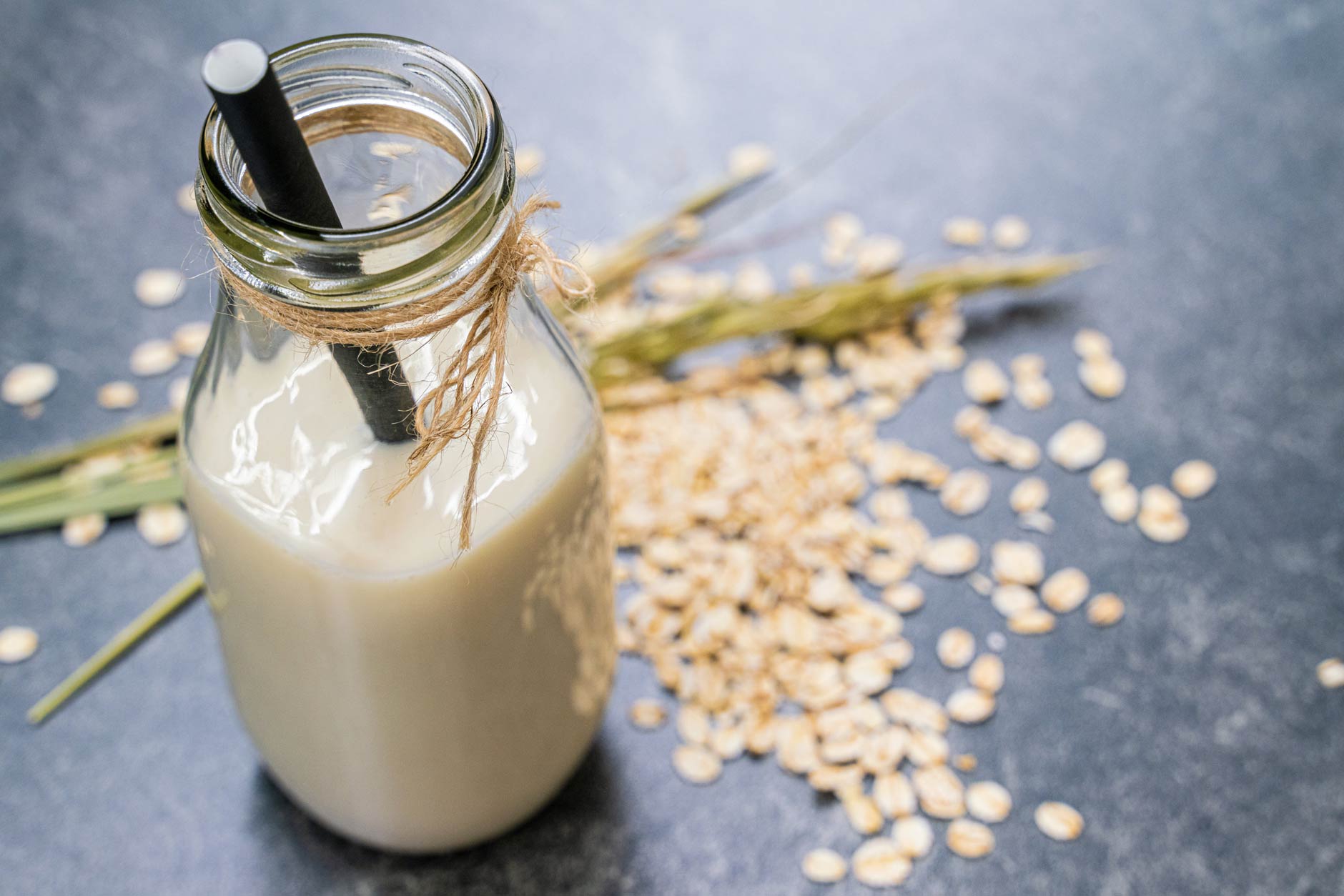Plant-based drinks: Krones is focussing on oats

Just ten years ago, plant-based drinks were still a niche product found mostly in organic grocery stores. Today, they’ve made their way into every supermarket, without exception – and they’re filling the shelves with an increasingly colourful array of products. This sheer diversity is also reflected in the processing methods for the various raw materials used because each one possesses certain properties that must be taken into due account in the production process. Krones is focussing above all on the production of oat drinks and can offer three different process variants.
Variant 1 – Using a ready-made oat base
Just like in soft-drinks production, the oat base used in this process variant comes in liquid form and can simply be purchased from suppliers. It is then blended with any additional ingredients such as stabilisers, aromas, or fats to achieve the desired consistency and flavour nuances. Incidentally, this step is common to all three options. The blending itself is done in standard process tanks which are already on hand in the syrup rooms of many beverage plants. That is precisely why this option is ideal for companies wanting to quickly give the production of oat drinks a try without needing to invest in new equipment.
Variant 2 – Using oat meal
This process variant based on oat meal is also suitable for getting started quickly since it likewise uses common process tanks for blending. It does, however, require a disperser (such as a vacuum mixer) for dissolving the oat meal in water. The difference between this process and variant 1 is that the first step requires the addition not only of water but also of enzymes that catalyse hydrolysis. After that, the solids simply have to be separated from the liquids in a decanter, which will also need to be installed. The resulting base can then be blended to create the final product. The ideal target group for this option is customers looking to make a quick start in producing mid-range volumes of oat-based drinks with little investment. Dairies and other companies with production experience can meet some of the equipment needs with technology they already have on hand.
Variant 3 – Using whole oat kernels or oat flakes
Production in this variant is based on oat kernels or oat flakes, which can be freshly milled on site. Enzymes are added in specially designed enzyme tanks that are based on the mashing technology used in brewing beer. It is only logical to apply the beer-making expertise of our brewery specialists to plant-based drinks since both processes have a lot in common. Like barley or wheat, oats are grains that are milled and then vigorously blended with water and, later, with enzymes and other ingredients, in a special enzyme tank to create a homogeneous liquid. The pillow plates and integrated vibration units in the tank ensure that everything is heated evenly and the soluble components of the oats are extracted with the utmost efficiency.
Besides high extract yields and product quality, these enzyme tanks offer great potential for energy savings. The specially shaped interior heat exchanger surface transfers the heat so efficiently that the temperature of the heating media can be reduced dramatically and hot water can be used instead of steam. As a result, the energy recovered during the cooling process can be used for the next heating cycle.
Download

Dr. Anne-Kathrin Bräu

Peter Mörtl